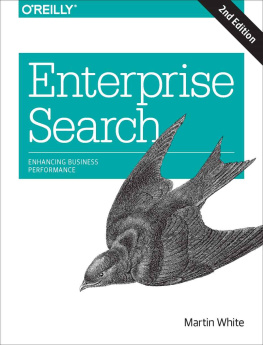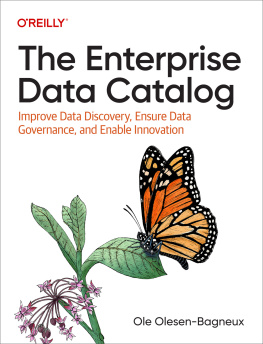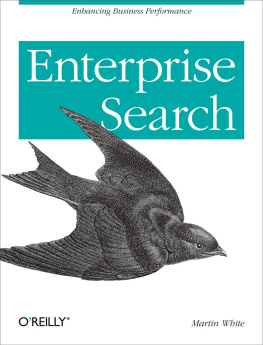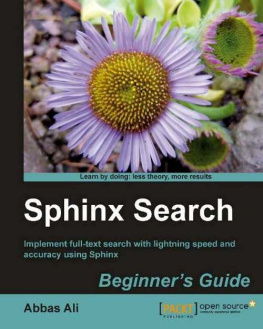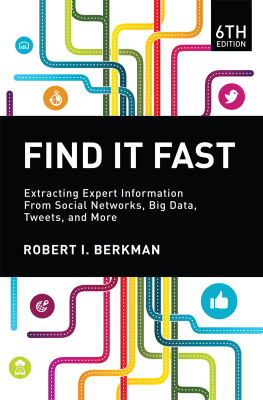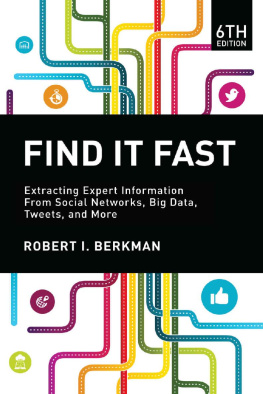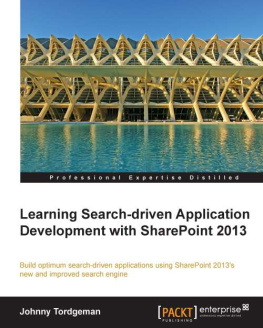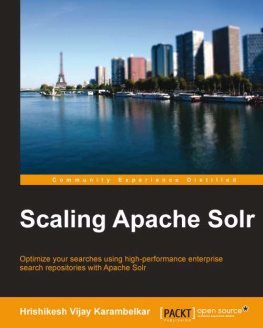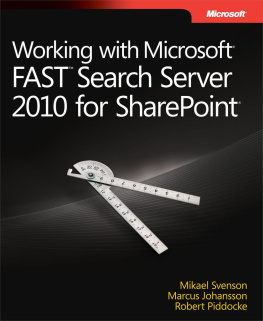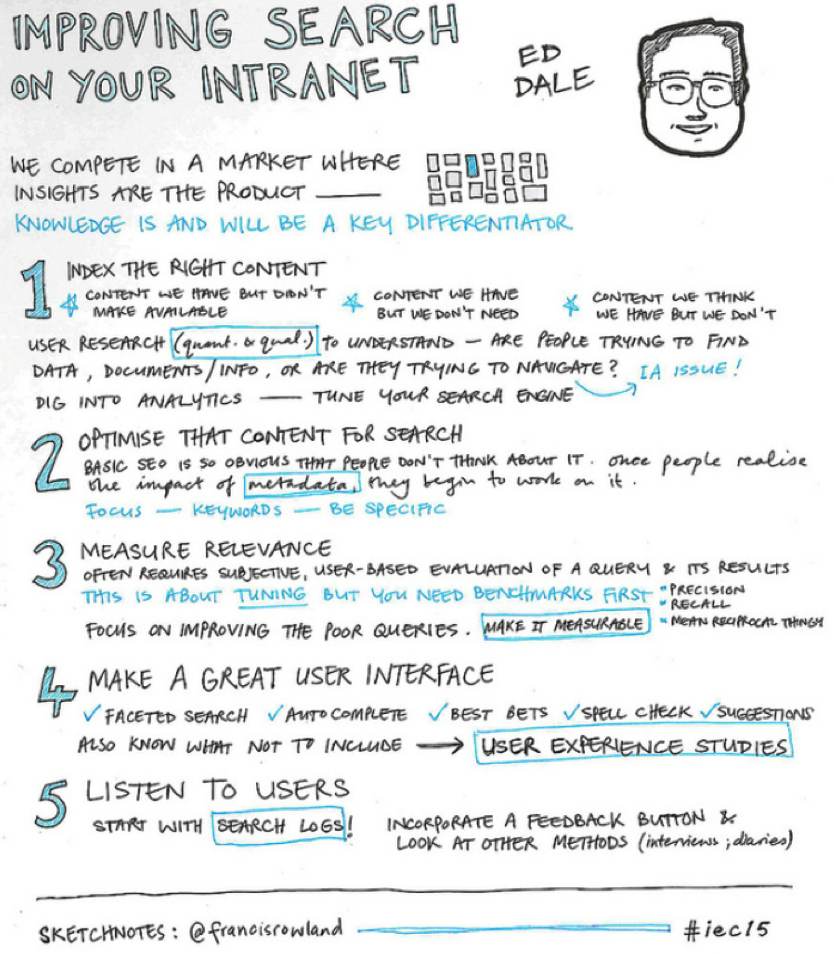Martin White - Enterprise Search: Enhancing Business Performance
Here you can read online Martin White - Enterprise Search: Enhancing Business Performance full text of the book (entire story) in english for free. Download pdf and epub, get meaning, cover and reviews about this ebook. year: 2015, publisher: OReilly Media, genre: Computer. Description of the work, (preface) as well as reviews are available. Best literature library LitArk.com created for fans of good reading and offers a wide selection of genres:
Romance novel
Science fiction
Adventure
Detective
Science
History
Home and family
Prose
Art
Politics
Computer
Non-fiction
Religion
Business
Children
Humor
Choose a favorite category and find really read worthwhile books. Enjoy immersion in the world of imagination, feel the emotions of the characters or learn something new for yourself, make an fascinating discovery.
- Book:Enterprise Search: Enhancing Business Performance
- Author:
- Publisher:OReilly Media
- Genre:
- Year:2015
- Rating:3 / 5
- Favourites:Add to favourites
- Your mark:
Enterprise Search: Enhancing Business Performance: summary, description and annotation
We offer to read an annotation, description, summary or preface (depends on what the author of the book "Enterprise Search: Enhancing Business Performance" wrote himself). If you haven't found the necessary information about the book — write in the comments, we will try to find it.
Is your organization rapidly accumulating more information than you know how to manage? This updated edition helps you create an enterprise search solution based on more than just technology. Author Martin White shows you how to plan and implement a managed search environment that meets the needs of your business and your employees. Learn why its vital to have a dedicated staff manage your search technology and support your users.
Enterprise search is now moving from a nice to have to a need to have application as organizations struggle to find the information they need to make good business decisions. With this book, business managers, IT managers, and information professionals can maximize the value of corporate information and data assets.
New and updated material for this second edition includes: updated surveys, open source search, eDiscovery, mobile search, big data and content analytics, as well as a chapter on the future of enterprise search.
- Use 12 critical factors to gauge your organizations search needs
- Learn how to make a business case for search
- Research your user requirements and evaluate your current search solution
- Create a support team with technical skills and organizational knowledge to manage your solution
- Set quality guidelines for organizational content and metadata
- Get an overview of open source and commercial search technology
- Choose an application based on your requirements, not for its features
- Make mobile and location-independent search part of your solution
Martin White: author's other books
Who wrote Enterprise Search: Enhancing Business Performance? Find out the surname, the name of the author of the book and a list of all author's works by series.

